Valued Services

Embedded programme
The Library’s Embedded Programme builds upon our open teaching and learning support, giving academic and support staff the opportunity to work with us to integrate support in the curriculum or other areas of the University. This support can be asynchronous and/or live, online and/or on campus. We combined resources and sessions from My Learning Essentials (MLE) with other programmes, and developed bespoke support for particular disciplines.
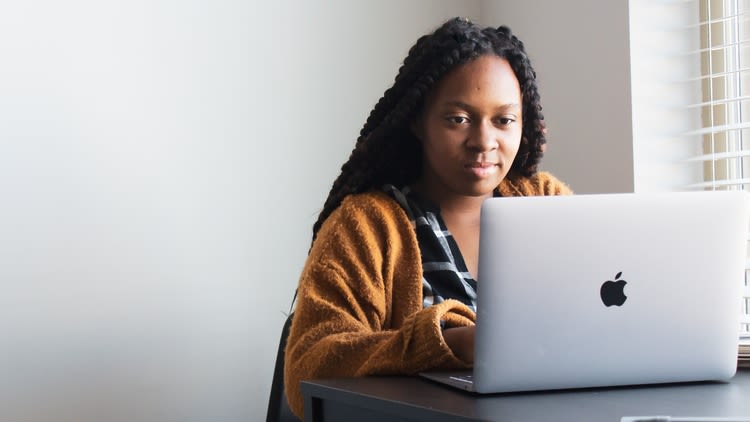
During 2020/1, we significantly strengthened our online offer to ensure that we continued to provide the same level of support in changed circumstances. We developed many in-depth asynchronous resources available in Blackboard and elsewhere, to make up for a lack of in-person teaching.
Since then, we have built upon the strength of our new resources. We have been updating these resources and adding new sections and combining asynchronous support with an increased amount of synchronous teaching, both virtual and on-campus. This combination makes our embedded offer stronger than ever. In 2021/22, we handled 120 requests for embedded support, with a student attendance in live sessions of over 2,800. We also responded to 41 requests to embed Get Started online support.
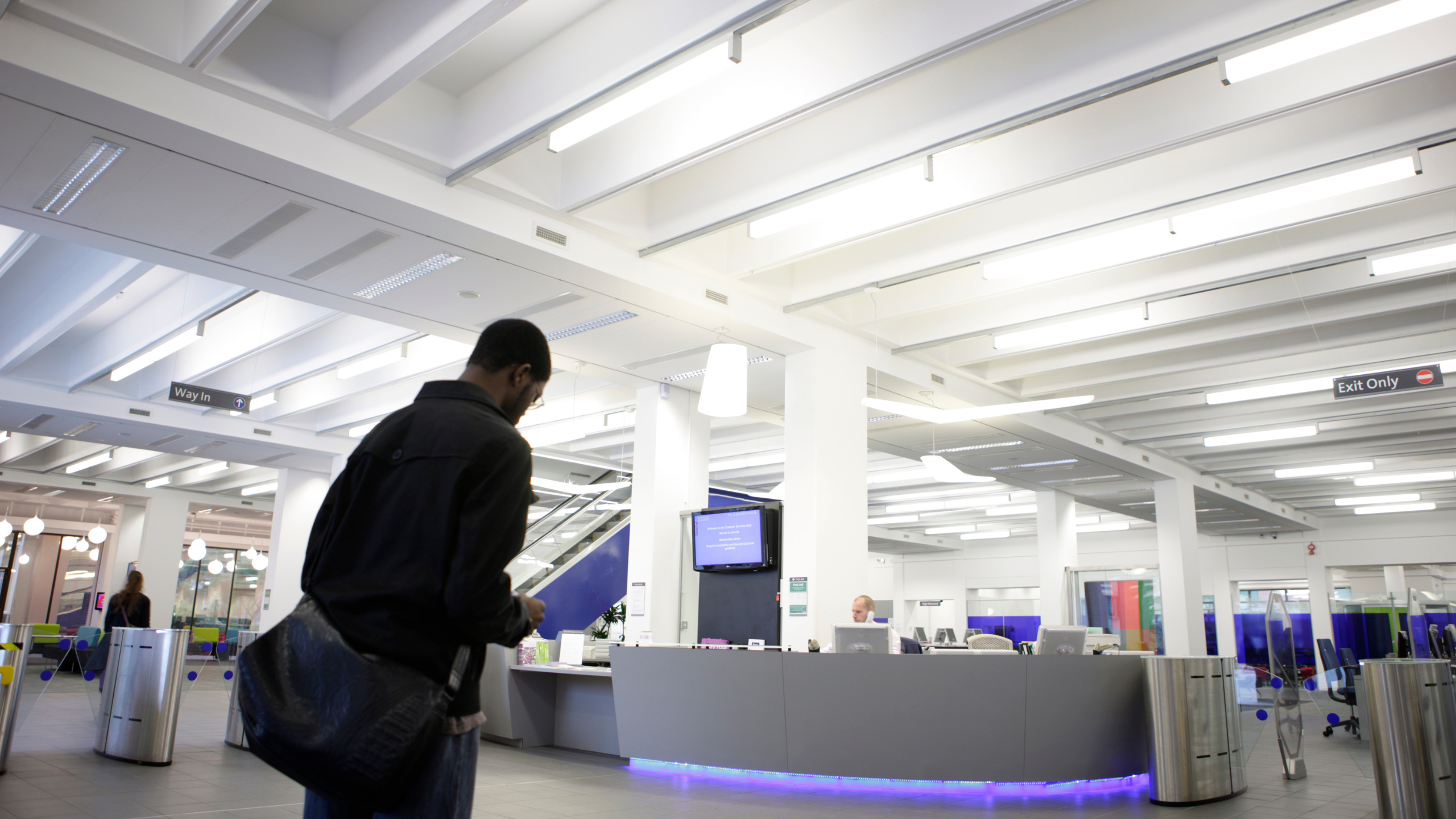
Teaching and Learning
This year, users have accessed Library teaching and learning support both live and asynchronous in huge numbers. Students accessed our online resources over 222,000 times and our subject guides over 497,000 times. These numbers do not reflect superficial usage: My Learning Essentials (MLE) resources are accessed on average for around ten minutes each over 680 days’ total access time for the year, while our YouTube videos were watched for more than 300 hours.
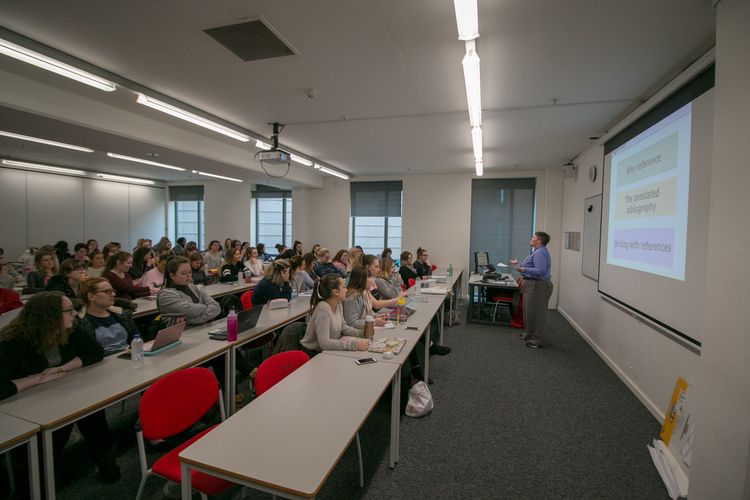
We delivered live support on campus and online. We held 277 MLE sessions (amounting to over 400 hours of live teaching) and over 4,800 learners attended workshops, drop-ins and embedded support from My Learning Essentials, My Research Essentials, and Specialist Library Support.
The Library’s Digital Support Team worked on the redevelopment of digital technology in the Main Library Teaching Suite to support the delivery of sessions. This included 40 new laptops and enhanced audio-visual presentation equipment.
The Library continues to assist students through our enquiries service. In 2021/22 Teaching and Learning enquiries totalled over 3,100 with the most popular areas being referencing support, advanced searching/systematic reviews, and business data. Additionally, many students received support immediately through offers such as the Library Help Teaching, Learning and Students knowledge base, which saw over 59,000 pageviews.

Collaborative teaching and learning projects
In addition to regular updates to existing resources and releasing new ones across our programmes, we developed two innovative new resources in collaboration with staff across the University.
The first was ‘Develop your Digital Capabilities’ in collaboration with Dr Jane Mooney, Academic Theme Lead for Digital Skills and Literacy (Flexible Learning Programme). This programme maximised student and staff benefits from the Jisc Discovery Tool. This tool works hand-in-hand with Library resource to help students understand and develop their digital capabilities. The Jisc tool provides a reflective questionnaire, while the Library resource signposts 21 resources in seven key areas. This allows students to choose which areas to focus their development and select the most appropriate resources. Since we launched this programme in September 2021, students accessed it over 3,000 times, making it one of our most used resources. Learners spend an average of over 33 minutes on the page, totalling 88 days’ access for this academic year.
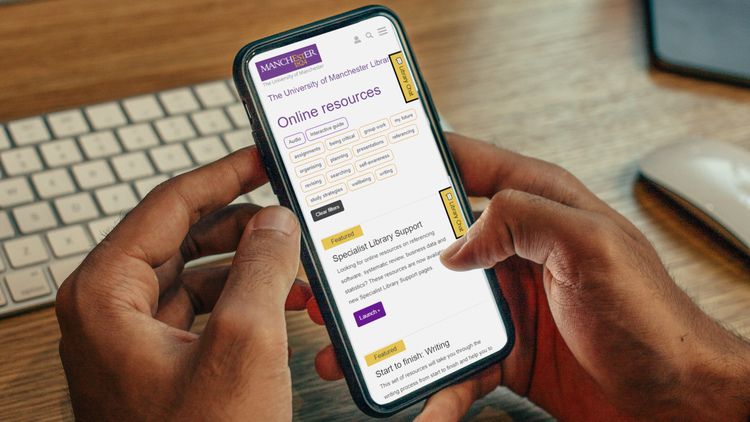
The second programme is ‘Transition Resource’, which was developed by students and staff across the University. This programme was made to help new students prepare for life at university. We launched this programme for the start of the 2022/23 academic year. It features tips, resources, and opportunities in both text and video formats.
One of our aims was to avoid students feeling overwhelmed, so we took a new approach and built a to-do list feature. Rather than being presented with a list of things which they may feel obliged to do, students can create a personalised list and choose a few things to do to help them settle in and slowly tick tasks off. We are proud of this approach and already have plans to use it in future resources.
In addition to the programmes above, the Library also coordinated an institutional trial of ‘Hypothes.is’, a social annotation tool for teaching, learning and assessment. This tool helped coordinate more efficient institutional access of Mentimeter, an interactive group response tool. Both tools have since been purchased and are available to all staff and students for 2022/3.

Research Services
Between September 2021 and August 2022, the Library delivered valued services to researchers:
- Handled 2,079 Open Access Gateway deposits
- Facilitated the immediate Open Access publication of 6 monographs and 525 journal articles, 366 of which required payment of an Article Processing Charge (APC)
- Established 20 Transformative Agreements with academic publishers
- Undertook 1,984 Data Management Plan (DMP) outline reviews, and full reviews of 433 DMPs
- Validated and published over 600 research data resources in Figshare
- Provided bibliometric analysis and guidance to support Schools and Faculties across the University in demonstrating research impact, including for the University’s APR and three large strategic projects focused on Artificial Intelligence; Healthy Futures; and Sustainable Futures.
- Supported electronic submission of 1,187 Postgraduate Research theses for examination
- Delivered 119 My Research Essentials (MRE) workshops with a total of 1,499 attendees; and provided online resources which were engaged with 2,306 times (based on page views)
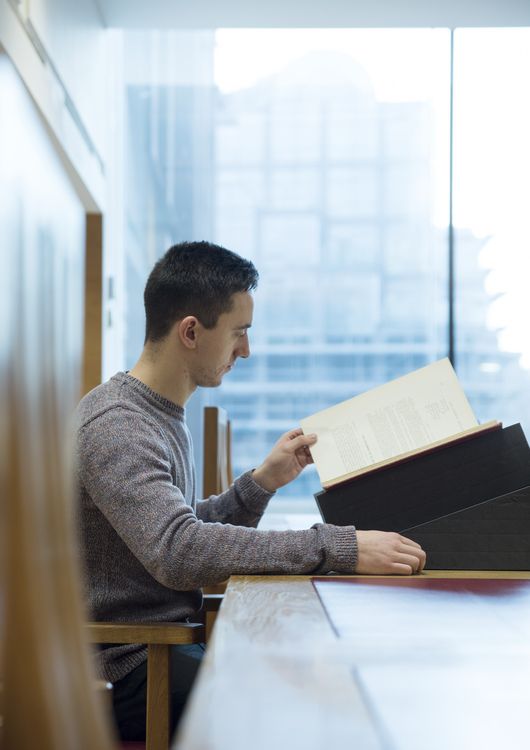

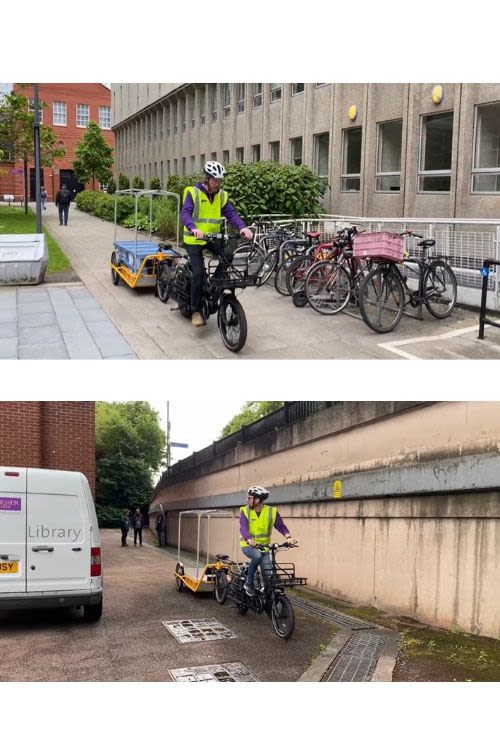
E-cargo bike and trailer
This year we were part of a successful bid to acquire an electric bike to support our stock operations. The scheme is part of a wider green transport programme for Manchester, funded by the Energy Savings Trust, with support from the Department for Transport.
The University is one of seven partner organisations in a project that aims to establish a well-used fleet of e-cargo bikes in the city. We are working with Manchester City Council’s Zero Carbon Team, who are leading the initiative to encourage businesses, community groups and residents of Greater Manchester to try this sustainable alternative to cars.
Our e-cargo bike has a rechargeable battery and can comfortably tow 250kg. It comes with a trailer, which is easily attached and can accommodate many crates of books. The trailer can also be used without the bike and is easy to manoeuvre by hand with its electric assist.
We are using the bike and trailer to move books between the Main Library and our site libraries on the Oxford Road corridor. This equipment is ideal for making deliveries in urban environments and will help rely less on the Library vans.
The team completed e-cargo training over the summer, and we began a weekday service on the bike at the start of the first semester. Look out for us around campus!
We introduced our e-cargo project in a film for our Library staff conference ‘Together’. Watch our team getting to grips with the e-cargo bike and trailer soon after they were delivered; trialling our cycle routes to site libraries, and delivering our precious cargo of library books.

Commercial income - filming and retail
We were able to restart the Rylands shop as the pandemic restrictions eased. We also developed a successful new partnership with Manchester University Press and introduced a new range of bespoke products for our Dante and British pop archive exhibitions.
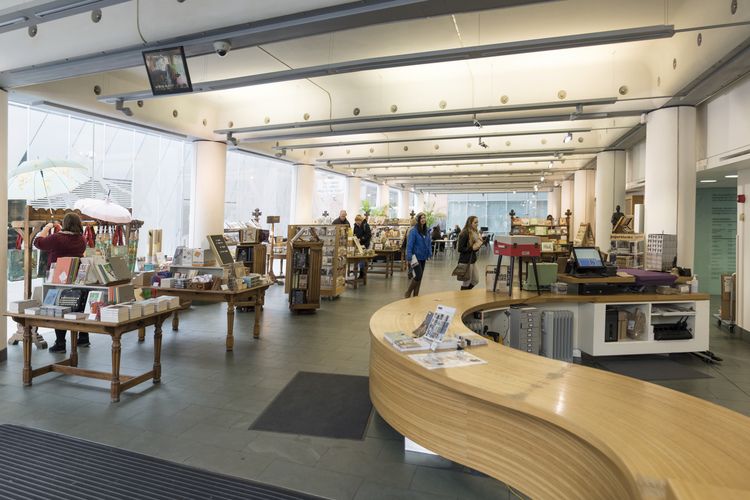
The Rylands hosted two television shoots. The BBC3 series Red Rose (currently on iPlayer) and CBBC series A Kind of Spark (still in production – to be broadcast in 2023) both used the building as a filming location. Unusually for a drama series, the Rylands played itself in Red Rose as a setting for a date.

Virtual reading room
During the pandemic, we established the virtual reading room to keep our collection accessible. This service allows researchers to view special collections material remotely via Zoom. Post pandemic, the Reader Services team continues this service with fifteen sessions offered at Rylands and a further fifteen at Main Library Special Collections.
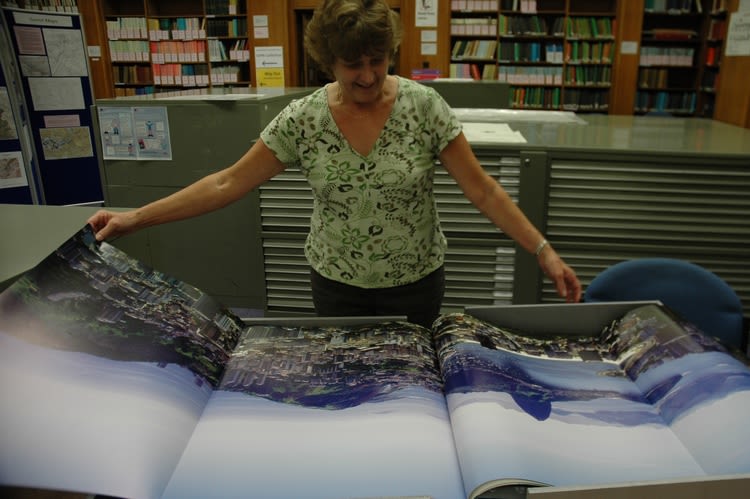
Researchers from outside Manchester valued this service, joining us from North America, Japan and Marple Bridge (on the edge of the Peak District).

Reading Lists Online
The Library’s Reading Lists Online (RLO) service provides academic staff with a simple way to deliver equitable online access to reading lists, and seamless access to electronic content from within the Virtual Learning Environment.
The service has grown considerably over the past year, supporting the University’s shift to flexible learning, where access to digital material is now considered essential to guaranteeing a good student experience.
During 2021/22, an additional 378 new lists were added to RLO - a 15% increase on the previous year (where we had seen a 67% rise). Over 60% of all taught courses had at least one online reading list available by the end of the academic year. Almost 1,000 staff involved in teaching delivery used RLO to create and edit their lists. An average of 11,671 students used the system monthly to access their recommended reading, a 54% increase on 2020/21.
The Library also worked closely with the University Counselling Service to update, expand and promote the Counselling and Mental Health reading list. This list now includes 101 titles across 33 topics.
Meanwhile, the Teaching Collections Team:
- Reviewed 919 reading lists to ensure provision of cited content
- Purchased an additional 387 new titles as eBooks, 77% of which offered unlimited user access
- Supplied 264 digitised extracts from print only texts, and digitally held titles with restrictive licences
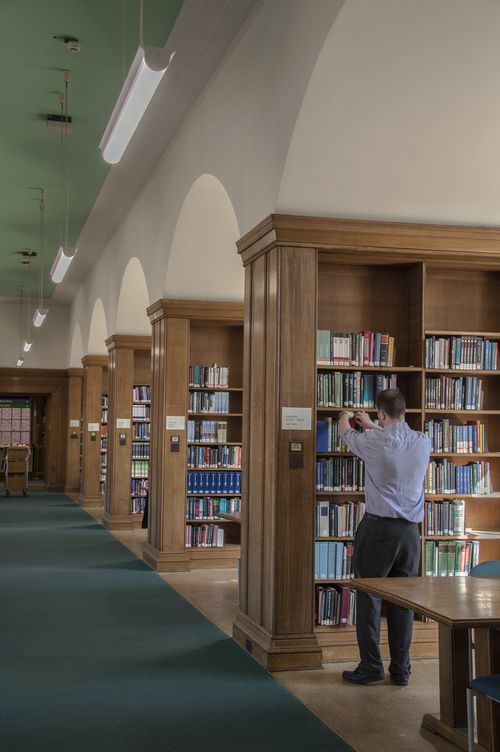

eTextbook Programme
Our eTextbook programme offer has been fundamental to supporting the full spectrum of teaching methods in the University’s Flexible Learning Programme and has been crucial to underpin online pedagogy. Our well-established programme (already one of the largest in the UK) was expanded again in 2021/22 to support our students with a downloadable copy of their core textbooks.
Teaching staff also recognise the importance of this programme. We saw a 51% increase in our support for course units in 2021/22 and a 75% average student engagement rate in the use of those texts.
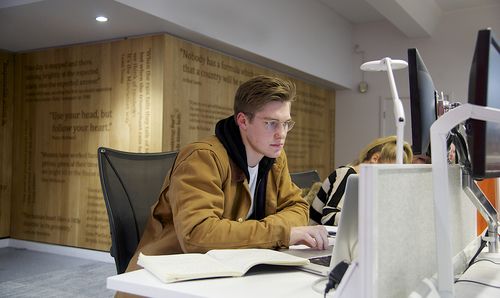
In addition to Core eTextbooks, we also provided access to 10,000 Open Educational Resources (OER) eTextbooks through the Kortext platform, including titles from hundreds of publishers around the world.
In 2021/22 the programme provided:
- Access for students on 828 course units to their own personal copy of an eTextbook
- 110,000 eTextbook copies to 32,000 students (38% increase), with average of 3 textbooks each.
We also saw an increase in our students’ uptake and engagement with these eTextbooks:
- 75% of students registering and actively engaged with their textbook/s
- 95% of students spending 15 minutes or more during each study session - spending an average of 1hr reading each title (accessing an average of 673 pages)
- Students also made 600,000 annotations– demonstrating the value of the eTextbook platform and the enhanced features offered.
The programme was accessed in 141 countries and 2,949 cities around the world. The highest usage outside of the UK was in China.